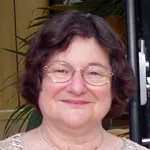
Dr. Herzenberg's group maintains jointly functioning laboratory groups. Their focus is on gene regulation in the immune system, development and function of B cell subpopulations, and applications of Fluorescence-Activated Cell Sorting (FACS).
They have been interested for many years in the genetics and development of the immune system in mice. A major tool they have developed to aid us in this work is the Fluorescence-Activated Cell Sorter (FACS), which permits analysis and sorting of viable cells very rapidly on the basis of fluorescence marking. Recently they have devised a method to study gene regulation at the individual cell level using the FACS and a fluorogenic substrate for E. coli lac Z-encoded ß-galactosidase (ß-gal).
Current Studies include:
- A new population of B cells, Ly-1B, which follow different rules of differentiation than conventional B-cells, have different V gene repertoires and provide a model for autoimmune diseases and chronic lymphocytic leukemia (CLL).
- Regulation of lymphocyte development, especially B and T cell development.
- Cis and trans-acting elements regulating the variation of ß-gal expresstion in populations of lymphoid cells infected with lacZ recombinant retroviruses in which various viral and cellular promoters "drive" lacZ.
- Cell lineage studies using introduced lacZ rDNA retroviruses as cellular markers with the FACS / b-gal assay.
- The cell biology of AIDS in model systems including activation of b-gal expression in cells carrying the lacZ gene under control of HIV promoters and regulatory elements.
- What transgenic mice can and can't tell us about cellular and molecular development of the immune system.
